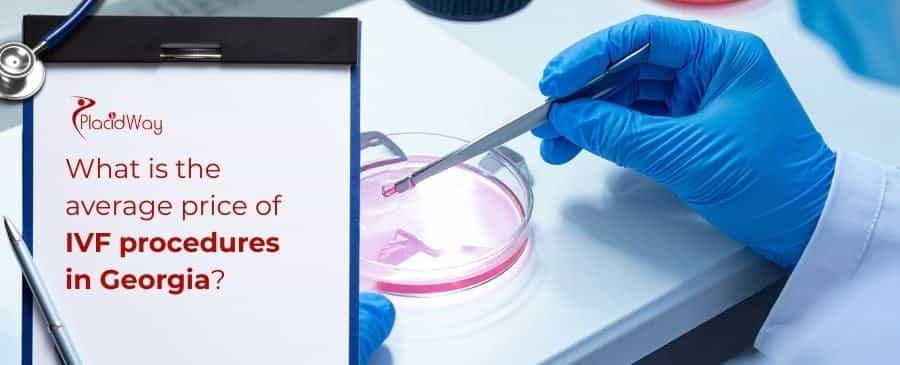How Much Does IVF Cost in Mexico?

Embarking on an IVF journey is a significant emotional and financial commitment. For many hopeful parents in the United States and Canada, the staggering cost of fertility treatment at home can feel like an insurmountable barrier. This has made Mexico a leading destination for high-quality, affordable care. However, savvy patients know that the advertised "base price" for an IVF cycle is rarely the final number. The key to budgeting accurately and avoiding surprises lies in understanding all the potential "additional fees."
The true IVF cost in Mexico is a sum of several parts: the core procedure, essential medications, advanced laboratory techniques, and other services that might be necessary for your specific case. A low initial quote can be misleading if it doesn't account for these variables. This guide, updated for 2025, is designed to provide a transparent and comprehensive breakdown of the total cost.
We will explore what's included in a standard cycle, detail the most common additional fees, and explain how to get a clear, all-encompassing quote from a clinic. Understanding the complete financial picture is the first step toward a stress-free and successful fertility treatment in Mexico.
What is the base price of an IVF cycle in Mexico?
The base price is the foundational cost of the IVF process. It's the quote you will most often see advertised online. While it varies slightly between clinics in cities like Cancun, Tijuana, and Mexico City, a standard package generally covers all the essential procedural steps performed by the medical team. Specifically, the base price should include:
- Initial consultation and treatment planning with the fertility specialist.
- Ultrasound monitoring during the ovarian stimulation phase.
- The egg retrieval procedure, including the anesthesiologist's fee.
- Standard fertilization of the eggs in the laboratory.
- The fresh embryo transfer procedure.
- All follow-up consultations while you are in Mexico.
Think of this as the cost of the doctors' time and the use of the clinic's main facilities. The major variable costs, like medications and advanced lab work, are almost always separate.
What are the most common additional medical fees?
These additional fees are what determine the final total IVF cost. It's crucial to discuss which of these are recommended for your specific case during your initial consultation. Here is a breakdown of the most common add-on costs:
| Additional Service | Purpose | Estimated Cost (USD) |
|---|---|---|
| Fertility Medications | Hormones to stimulate egg production. | $1,500 - $3,000 |
| ICSI (Intracytoplasmic Sperm Injection) | Injecting a single sperm into each egg; standard for male factor infertility. | $500 - $1,500 |
| Embryo Freezing (Vitrification) | Freezing and storing surplus healthy embryos for future attempts. | $500 - $1,000 (plus annual storage fees) |
| PGT-A (Genetic Testing) | Screens embryos for chromosomal abnormalities to increase success rates. | $3,000 - $6,000 (for a batch of embryos) |
| Assisted Hatching | A microscopic incision on the embryo's shell to help it implant. | $300 - $600 |
How much do IVF medications cost in Mexico?
The price of medications depends on the specific protocol and dosage your doctor prescribes based on your age, ovarian reserve, and medical history. While these drugs are significantly cheaper in Mexican pharmacies than in the U.S., they still represent a major part of the overall budget.
Your clinic will provide the prescriptions, and you will purchase the medications from a local pharmacy upon your arrival. It's a good practice to ask your coordinator for an estimated medication cost based on your diagnosis when you receive your initial treatment plan.
How does the cost of Donor Egg IVF in Mexico compare?
Donor egg IVF is a more complex and expensive process, but it is still vastly more affordable in Mexico than in the United States, where costs can exceed $30,000-$40,000. The price in Mexico covers all aspects of the cycle, including finding and screening the egg donor, the donor's medical fees and compensation, and the full IVF procedure for the intended parent, from fertilization to embryo transfer. This makes Mexico a top global destination for patients requiring donor eggs.
What are the non-medical costs I need to budget for?
Creating a realistic budget means looking beyond the clinic's quote. The required stay for an IVF cycle is typically around 15 to 20 days. Your budget should include:
- Airfare: Prices vary by season and how far in advance you book.
- Accommodation: A 2-3 week stay in a hotel or Airbnb. Many clinics have partnerships with nearby hotels for discounted rates.
- Food & Daily Expenses: Budget for daily meals and incidentals.
- Time Off Work: Factor in any potential lost income from taking an extended trip.
Choosing a clinic in a border city like Tijuana can reduce some of these costs if you are able to drive and stay on the U.S. side, but for destinations like Cancun or Puerto Vallarta, these travel costs are a necessary part of the total investment.
How can I get a transparent and accurate price quote?
A reputable clinic will be happy to provide a transparent quote. Never proceed with a clinic that is vague about its pricing or hesitant to put everything in writing. During your initial video consultation, be prepared with a list of questions about costs. Ask the coordinator to send you a formal estimate that details every potential charge, from ICSI to genetic testing.
Navigating your fertility journey requires trusted partners and clear information. Placidway connects you with a global network of accredited fertility clinics in Mexico. Explore your options, get transparent, no-obligation quotes, and find the support you need to build your family.


.png)




Share this listing